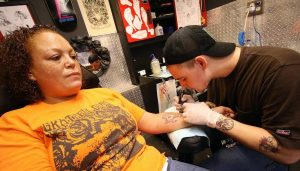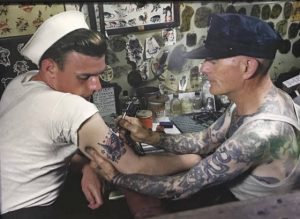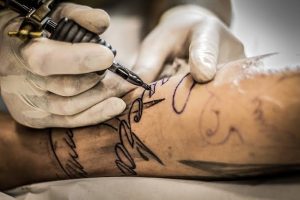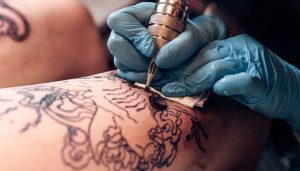
You’ll have to skip swimming for a while. Avoid swimming directly after your piercing. Shutterstock If you’re keen to show off your new piercing at the pool or beach, you might have to stay out of the water. The newly priced to avoid submerging the piercing in unhygienic bodies of water such as lakes, pools, and hot tubs. Submerging your piercing in these ways could expose the wound to harmful bacteria. However, if you’re really determined to dive in or can’t avoid being around water, you can protect your piercing using a waterproof wound-sealant bandage.

Make sure you’re legally old enough to get pierced. You most likely have to be over 18. Symptoms to watch for although tongue piercings are quick to heal compared to other piercings, they’re extremely vulnerable to infections. Poor-quality jewelry, messing with the piercing, and improper cleaning techniques all increase your risk.See your doctor if you experience:severe painsevere swellingredness around the piercing sitedischarge from the piercing siteunusual odors. Your doctor will prescribe antibiotics to help treat the infection and prevent its spread.You shouldn’t remove the jewelry during this time. Doing so will trap infectious bacteria inside your tongue and may lead to further complications.If you decide that you want to let the piercing close up or you just want to switch the jewelry you should wait until the infection has completely cleared.

Tattoo and body piercing studios are required to provide you with verbal and written instructions for proper care of your tattoo or body piercing. For at least two weeks following your tattoo procedure, you should minimize your exposure to the sun and refrain from swimming. In addition, you should properly cleanse the tattooed area, apply antibiotic ointment or cream, and use sterile bandages or other sterile dressings when necessary. Following your body piercing procedure, you should properly cleanse the pierced area by using antibacterial or antimicrobial soap for the external skin or an antiseptic or carbamide peroxide mouthwash for the oral cavity. In addition, you should minimize your exposure to contaminants for at least the first six weeks and use sterile bandages or other sterile dressings when necessary. You should consult a health care practitioner at the first sign of infection or an allergic reaction, and to report any diagnosed infection, allergic reaction, or adverse reaction resulting from the tattoo or body piercing procedure to the studio.

As far as tattoo aftercare, for the first few days, leave it clean and dry. Wash it twice daily with a fragrance-free gentle cleanser, pat it dry, and let it air out. After those first few days, you’ll notice the tattoo dry out, tighten up, and get a little itchy, but don’t scratch! Picking at your scab and skin can remove some of the ink too. Instead, continue washing it twice a day with your gentle cleanser, and add light layers of an unscented lotion or tattoo lotion to address the itch and keep the skin moisturized.

Definitely skip the piercing gun. Avoid a piercing gun. If you’re tempted to hop into one of those booths at the mall and get a spontaneous piercing, resist the urge. While professional piercing salons will likely use sterile needles, most retail or accessory shops that offer piercing will probably use a piercing gun. The APP advises against the use of piercing guns because they increase the risk of infection.”Piercing guns cannot be sterilized because they are made of plastic. The plastic would melt in an autoclave, which is what we used to sterilize instruments like needles, jewelry, and any tools we might use during the piercing,” says professional piercer and owner of Scarab Body Arts John Joyce to Good Housekeeping. Additionally, piercing guns can cause significant tissue damage.”The effect on the body is more like a crush injury than a piercing and causes similar tissue damage. Medically, this is referred to as ‘blunt force trauma.’ At the least, it can result in significant pain and swelling for the client, at the most in scarring and potentially increased the incidence of auricular chondritis, a severe tissue disfigurement.
When is it safe or perfect time to change the jewelry? While the initial piece of jewelry used for your piercing may not be your favorite, it’s important to make sure it stays put over the next eight weeks.Removing the stud too soon can increase your risk of tears and infections. The hole may also close up if you remove the jewelry too soon.Once the time comes to remove the jewelry used for the piercing, it’s best to see your piercer. They can ensure a safe removal process and show you how to correctly put new jewelry in.

Steer clear of any body of water for two weeks after your tattoo is completely finished. During that time, stick to showers (no baths!) and stay out of saunas, hot tubs, pools, lakes, oceans, ponds—you get the idea—to prevent infection. You’ll even want to avoid strenuous activity that can cause lots of sweating, like working out. Africanewsguru update.













